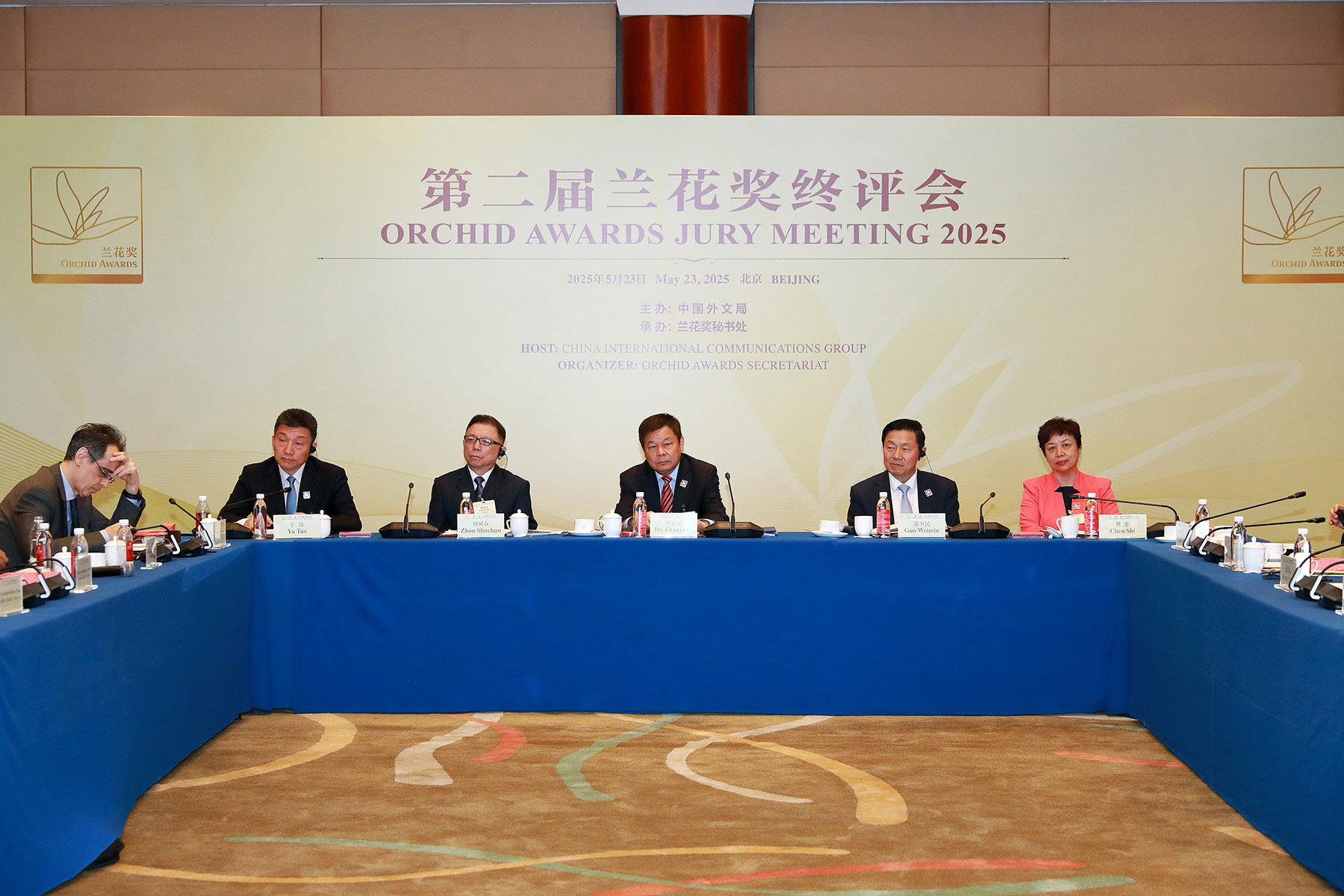
Celebrating exchange, friendship and collaboration, an award in the country honors those who build cultural bridges between China and the rest of the world, serving as living proof that dialogue can transcend borders and break down barriers, experts say.
Three short-listed nominees for the Lifetime Honorary Award for the second edition of the Orchid Awards this year were announced before the event's final jury meeting in Beijing on May 23. They are Marcelo Munoz, chairman of the Catedra China Foundation in Spain, Irina Bokova, former Director-General of UNESCO, and Francis Gurry, former Director General of the United Nations World Intellectual Property Organization.
At the meeting, jury members recommended 10 recipients for this year's awards and discussed the event's role in exchange of ideas.
READ MORE: Hoping to make a world of difference
Launched by China International Communications Group in 2022, the Orchid Awards are presented to non-Chinese individuals or organizations that have made outstanding contributions to cultural exchanges and mutual learning, as well as the promotion of Chinese culture.
According to CICG, the Orchid Awards seek to implement the Global Civilization Initiative, promote the common values of humanity, consolidate the cultural foundation for building a global community of shared future, and facilitate exchanges and mutual learning among civilizations.
This year, the awards received nearly 300 submissions from around 80 countries, which resulted in 30 finalists after a multi-round selection process. The awards comprise one Lifetime Honorary Award, three Outstanding Achievement Awards, and six Friendship Envoy Awards.
The final list of laureates is scheduled to be announced at the award ceremony in July.
Du Zhanyuan, chair of the awards' expert committee and director of the CICG, says that mutual learning among civilizations plays a vital role in building consensus and addressing common challenges facing humanity.
The modern-day importance of the Orchid Awards therefore lies in three aspects — to promote intercultural exchange, enhance people-to-people bonds, and build a platform to facilitate collaboration.
"CICG will take the nomination, selection and awarding process of the Orchid Awards as an opportunity to encourage countries to gain wisdom and nourishment from other civilizations and to promote common development and prosperity," Du says.
"Through exchange among civilizations, CICG will help strengthen the foundation for global peace, prosperity and mutual understanding, contributing to the building of a community with a shared future for mankind."
The expert committee for selection this year has 23 members, consisting of a chairperson, three deputy chairpersons, a secretary-general and 18 expert members.
According to Zhou Shuchun, deputy chair of the expert committee and executive vice-president of China Foundation for Human Rights Development, the jury demonstrates global representation with international experts from nine countries across five continents and Chinese experts comprising scholars, media professionals, artists and cultural entrepreneurs.
These experts cover diverse fields such as Sinology, international cultural exchange, media and communication, cultural heritage preservation, arts and music, publishing, as well as education and research.
Following the selection process, members of the expert committee engaged in a dialogue themed on the awards' values in bridging divides through exchanges and mutual learning among civilizations.
ALSO READ: Juilliard uses its imagination
Franco Amadei, Italian Sinologist and former cultural counselor of the Italian embassy in China, had served as an international jury member for the awards' both editions.
At the dialogue session, he said that the individuals and organizations honored by the Orchid Awards serve as compelling evidence that it is possible to overcome barriers and transcend national, geographic and cultural boundaries.
"The contemporary relevance of the Orchid Awards lies, on the one hand, in the ancient and universal humanistic spirit it embodies — the belief that no matter how different the 'other' may seem, we should always see them as part of humanity, as our brothers and sisters, not as outsiders, let alone enemies," he said.
"On the other hand, its relevance also stems from a pressing reality. In today's world, now more than ever before, we need such a civilizational initiative that speaks to the globe and to the shared future of humankind."
Contact the writer at chengyuezhu@chinadaily.com.cn


